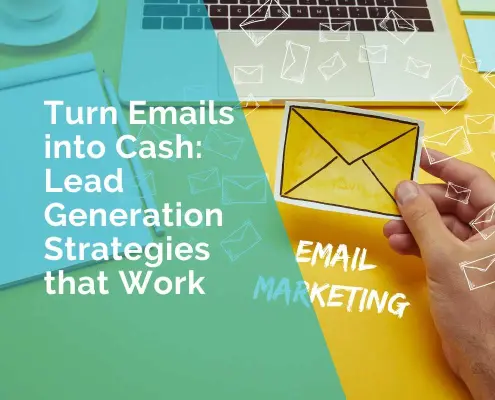Lessons Small Businesses Can Learn from Red Bull Cliff Diving
What do extreme sports and running a small business have in common? More than you might think!
Red Bull Cliff Diving, known for its breathtaking jumps and daring feats, embodies lessons that go beyond sport and can inspire small business owners. From embracing calculated risks to building a brand that resonates, there’s much to learn from the high-flying world of cliff diving. Let’s dive into these powerful lessons that can propel your small business to new heights!
Embracing Calculated Risks
Taking calculated risks is an integral part of both cliff diving and running a successful business. Professional divers meticulously evaluate the height, the condition of the water, and their own physical readiness before making a jump.
This level of preparation ensures that when they take the leap, they’re as prepared as possible for a successful outcome.
Small business owners can apply the same principle by carefully assessing potential risks before making significant decisions.
I recently attended the Red Bull Cliff Diving World Series finals in Sydney. Watching the divers launch themselves from incredible heights into the sparkling harbour below was awe-inspiring.
It was a vivid reminder of the importance of preparation, courage, and strategic risk-taking. Just as those divers assessed every detail before their jumps, small business owners need to thoroughly evaluate opportunities and potential challenges before making bold decisions. That event left me motivated to approach my own business with a renewed sense of bravery and diligence.
Understanding your industry, analysing the market trends, and weighing potential gains against potential losses is crucial for making informed decisions.
For instance, a small business considering expanding its product line or entering a new market should conduct thorough research and prepare a comprehensive strategy. This preparation minimises the risks and maximises the potential for a successful venture.
Strategic risk-taking has been the catalyst for many business breakthroughs. Companies that dared to step out of their comfort zones—whether by launching a unique product, rebranding, or exploring new distribution channels—often found themselves ahead of the competition. Taking calculated risks doesn’t mean acting recklessly; it means being bold with a solid foundation of knowledge and strategy.
Building a Standout Brand
Red Bull’s branding is nothing short of iconic. The company has managed to intertwine its identity with energy, adrenaline, and adventure, making it synonymous with extreme sports.
For small business owners, there is a powerful lesson in aligning your brand with specific values that speak directly to your target audience.
To create a memorable brand, start by defining what makes your business unique.
What values do you stand for?
How do you want your customers to feel when they interact with your brand?
Answering these questions helps shape a brand identity that resonates. Red Bull’s branding efforts are built on stories of athletes pushing boundaries and embracing challenges. Small businesses can emulate this by sharing their own stories—whether it’s the story of their founder, their mission, or the customer experiences that define their values.
Consistency in brand messaging is key. Every interaction, whether it’s through social media, email campaigns, or in-person events, should reinforce your brand’s core identity. This consistency builds trust and recognition over time, helping your business become a go-to name in your industry.
The Power of Storytelling and Engagement
Red Bull’s success isn’t just about sponsoring extreme sports; it’s about how they tell the story. The brand captures the essence of its sponsored athletes’ journeys, showcasing their training, challenges, and victories. This storytelling transforms ordinary marketing into compelling narratives that engage audiences on an emotional level.
For small businesses, storytelling can be a game-changer. People don’t just buy products; they buy experiences and connections. Sharing your journey as a business owner—the hurdles you’ve overcome, the lessons you’ve learned, and the triumphs you’ve achieved—creates a relatable and authentic connection with your audience.
Storytelling can be integrated into your content marketing strategy in various ways. Write blog posts that highlight the backstory of your most popular products, share behind-the-scenes videos on social media, or feature customer testimonials that showcase how your business has made a difference in their lives. Authenticity and relatability keep your audience invested in your story, making them more likely to become loyal customers.
Consistency and Dedication to Excellence
Consistency is essential for success, whether you’re a cliff diver perfecting your dives or a business owner striving to deliver quality service. Red Bull Cliff Diving athletes train rigorously to ensure that every performance meets a high standard. They know that even the smallest lapse in focus can lead to failure.
For small businesses, maintaining consistency in quality and service is crucial. This means ensuring that every customer interaction—whether through your website, customer service, or product experience—meets their expectations. Consistency helps build trust, and trust is what keeps customers coming back.
Dedication to excellence goes beyond just delivering good products or services. It means continuously looking for ways to improve, whether through new technology, staff training, or gathering feedback from customers. Small improvements over time can compound to create a significant advantage over competitors who are complacent.
Collaboration and Strategic Partnerships
Red Bull has built its brand in part by collaborating with top-tier athletes, event organisers, and like-minded brands. These partnerships are mutually beneficial—they help Red Bull solidify its place in the world of extreme sports while providing partners with additional visibility and resources.
Small businesses can benefit greatly from forming strategic partnerships. Collaborating with other businesses or industry influencers that complement your services can introduce your brand to new audiences and add value to your offerings. For example, a small local café might partner with a nearby bakery to cross-promote their products or collaborate with an event space to provide catering services.
When considering potential partnerships, think about the values and goals you share with other businesses. The best partnerships are built on a foundation of trust and aligned interests. Approach potential partners with a clear vision of how both parties can benefit, and be ready to collaborate openly to achieve shared success.
Adapting to Challenges and Staying Resilient
Cliff divers must be ready to adapt to constantly changing conditions—whether it’s the wind, water temperature, or their own physical condition. The ability to stay resilient and adjust to unforeseen circumstances is what makes them successful.
Small businesses operate in a similarly dynamic environment. Market trends shift, customer preferences change, and unexpected challenges arise. The businesses that thrive are the ones that can adapt and remain resilient. Viewing setbacks as opportunities for learning and growth is a vital mindset.
When facing challenges, take time to evaluate what went wrong and how you can improve. Whether it’s a campaign that didn’t meet expectations or supply chain issues, use these experiences to develop better strategies. Building a resilient business means preparing for uncertainty and staying flexible to pivot when needed.
Red Bull Cliff Diving showcases the importance of boldness, strategy, and continuous growth—qualities that can inspire any small business owner. By learning from their approach to calculated risks, branding, storytelling, consistency, partnerships, and resilience, you can position your business for long-term success. Embrace these lessons, integrate them into your strategy, and watch your business soar!
“Resilience isn’t just a trait; it’s a strategy. Like cliff divers adapting to shifting winds, businesses must learn to pivot with challenges and stay strong.“
Ivana Katz
Resources and Tools
Tools and Platforms:
- SEMrush – Comprehensive tool for market research, keyword analysis, and competitive insights.
- Google Trends – Useful for tracking market trends and consumer interests.
- Hootsuite – Social media management platform to ensure brand messaging consistency.
- Buffer – Alternative social media tool for scheduling and managing posts.
- Mailchimp – Email marketing platform for running consistent and engaging email campaigns.
- Canva – Design tool for creating visually appealing marketing content.
- Grammarly – Writing assistant for polishing marketing and storytelling content.
- Trello – Project management tool for organising tasks and maintaining adaptability.
- Asana – Another project management platform ideal for team collaboration and workflow tracking.
- Slack – Communication tool to keep teams connected and facilitate quick pivots when needed.
- Zoom – Video conferencing tool for networking and forming strategic partnerships.
- LinkedIn – Professional networking platform to find partners and connect with industry leaders.
- Alignable – Platform focused on connecting small business owners for partnerships and support.
Books:
- “Start with Why” by Simon Sinek – A book on how great leaders inspire action, perfect for understanding brand identity and storytelling.
- “The Lean Startup” by Eric Ries – Offers insights on risk-taking and continuous improvement in business.
- “Building a StoryBrand” by Donald Miller – Provides guidance on leveraging storytelling for brand growth.
- “Blue Ocean Strategy” by W. Chan Kim and Renée Mauborgne – Teaches strategic moves that can make your business stand out in a less competitive space.
- “The Power of Partnerships” by Greg S. Reid – Highlights the importance and methods for forming beneficial partnerships.
- “Grit: The Power of Passion and Perseverance” by Angela Duckworth – Useful for fostering resilience and a growth mindset.
Podcasts:
- “How I Built This” by Guy Raz – Features stories of entrepreneurs and how they built their businesses from the ground up.
- “Masters of Scale” by Reid Hoffman – Discusses scaling businesses and the risk-taking needed for growth.
- “The Tim Ferriss Show” – Offers a range of business and productivity strategies shared by successful individuals.
- “The Small Business Big Marketing Show” by Timbo Reid – Focused on practical marketing tips for small businesses.
- “The Smart Passive Income Podcast” by Pat Flynn – Insights on strategic growth, marketing, and brand building.
Websites:
- HubSpot Blog – Great resource for marketing, brand building, and business growth tips.
- Entrepreneur.com – Offers articles, guides, and insights for small business strategies.
- Harvard Business Review (HBR) – Provides deep dives into management, partnerships, and resilience in business.
- Business Insider – Features current market trends and stories of risk-taking and success.
- LinkedIn Learning – Courses on topics such as branding, storytelling, and building resilience.
Frequently Asked Questions
What is the main lesson small businesses can learn from Red Bull Cliff Diving?
The main lesson is the importance of embracing calculated risks. Just like the divers meticulously assess every aspect of their jump, small businesses should carefully evaluate opportunities and potential challenges before making bold moves. This strategic approach helps minimise risks and maximise growth potential.
How can small businesses apply Red Bull’s branding strategies?
Red Bull’s success in branding comes from aligning its identity with energy and adventure. Small businesses can apply this by defining their unique values, consistently reinforcing their brand message across all channels, and telling compelling stories that resonate with their target audience.
Why is storytelling important for small businesses?
Storytelling helps create an emotional connection with your audience. People are more likely to support a business when they can relate to its journey, values, and experiences. Sharing authentic stories helps build trust and brand loyalty, turning casual customers into devoted advocates.
What are some practical tools for maintaining consistency in business?
Tools like Hootsuite and Buffer can help manage social media posts to ensure consistent brand messaging. For email campaigns, platforms like Mailchimp can maintain uniform communication. Project management tools like Trello and Asana can help teams stay organised and maintain consistent quality across projects.
How do strategic partnerships benefit small businesses?
Strategic partnerships can introduce your business to new audiences, enhance your brand’s credibility, and offer shared resources. Collaborating with like-minded companies or influencers can amplify your reach and create mutual value. Platforms like LinkedIn and Alignable can be used to find potential partners.
What does it mean to adapt and stay resilient in business?
Adapting and staying resilient means being prepared for unexpected changes and challenges, such as shifts in market trends or economic conditions. Businesses that can pivot their strategies and remain flexible are more likely to thrive. It involves learning from setbacks, implementing improvements, and maintaining a positive outlook.
What are some examples of calculated risks small businesses should consider?
Examples include launching a new product or service, entering a new market, adopting innovative technology, or rebranding. These moves should be backed by thorough research and planning to ensure that potential risks are manageable and aligned with business goals.
How can I use Red Bull TV as inspiration for my business?
Red Bull TV showcases compelling content that reflects their brand’s energy and passion for adventure. Watching documentaries and series about the athletes they support can inspire new ideas for your own storytelling and content creation, helping you align your brand with values that engage your audience.
What steps can I take to build a memorable brand?
Start by clearly defining what makes your business unique. Consistently communicate these values through all customer touchpoints, including your website, social media, and marketing materials. Use storytelling to connect emotionally with your audience, and ensure your messaging is cohesive to build trust and brand recognition.
 Ivana Katz from Websites 4 Small Business is an award winning web designer who builds websites that build your business. She provides unbeatable web design services to fit your budget.
Ivana Katz from Websites 4 Small Business is an award winning web designer who builds websites that build your business. She provides unbeatable web design services to fit your budget.
The end result? Professional, custom-made sites that give your business the extra oomph it needs to stand out from the competition and make an impact.
Whether you’re a brand-new business or an established one ready to improve your digital presence, Ivana makes it easy to get your business online very quickly. Her websites are professional, tailored to fit your budget, and give your business a serious boost.
Download your FREE copy of “Ultimate Website Design Secrets Blackbook – 10 Bulletproof Strategies for Designing an Outrageously Successful Website”












